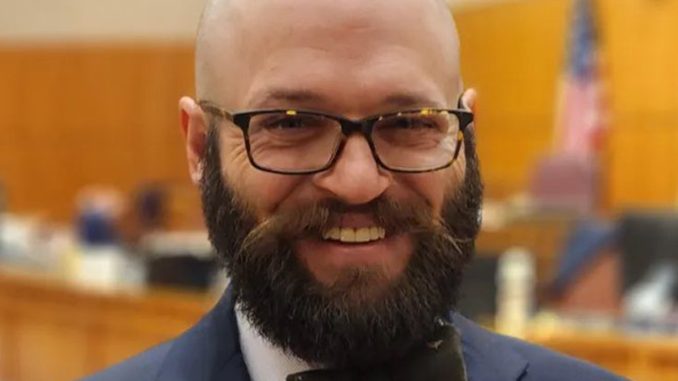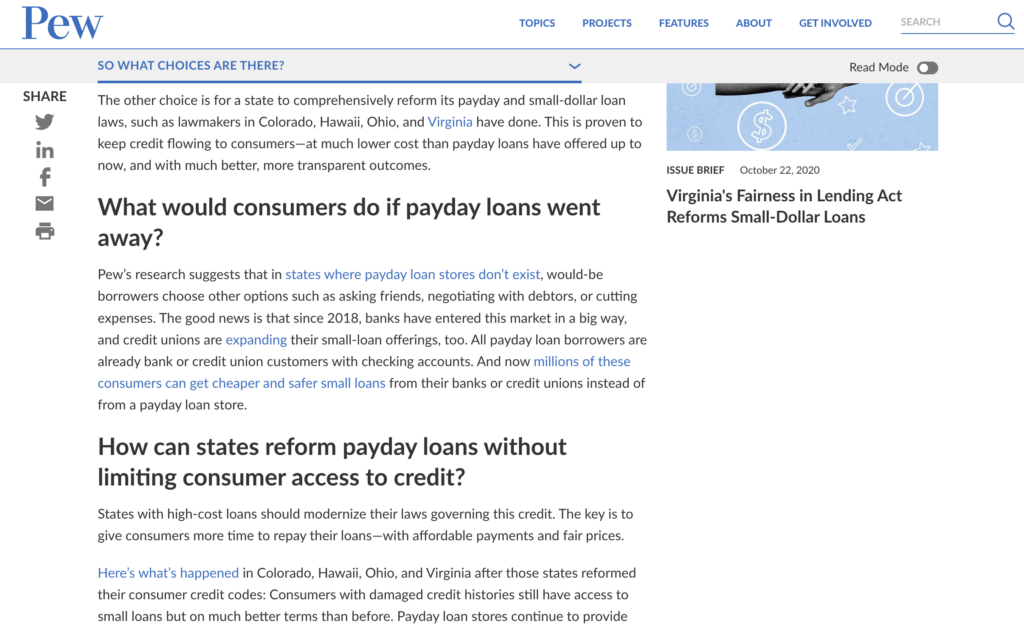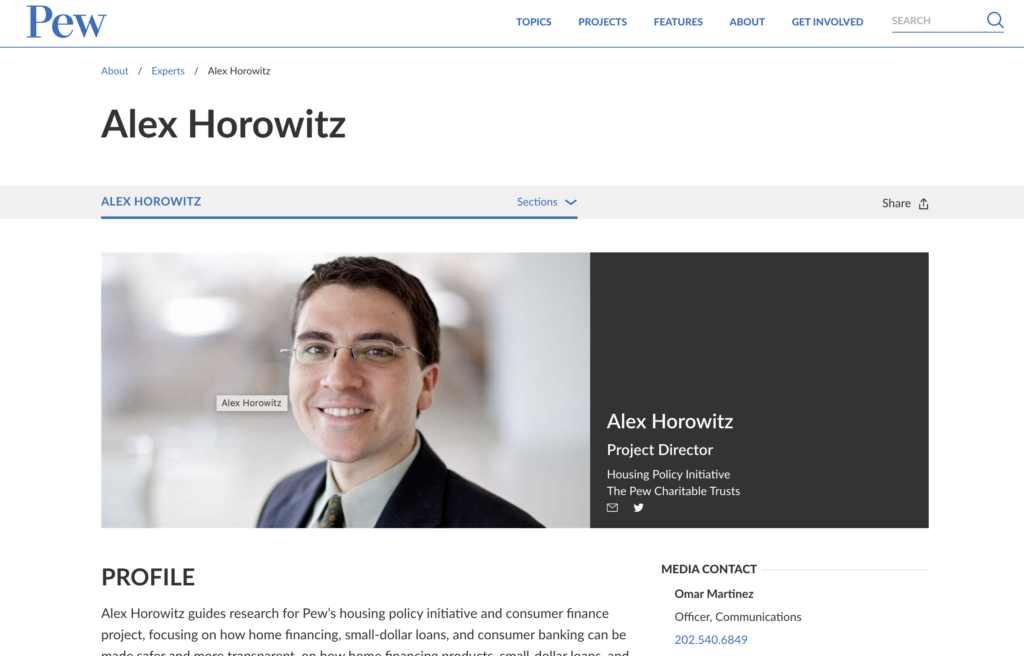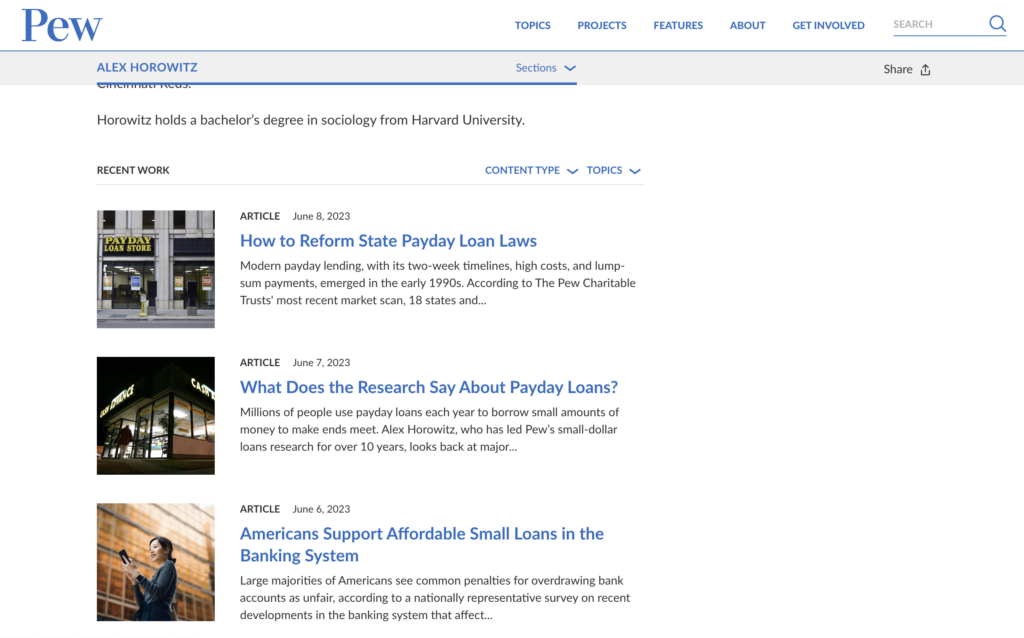
FIRST ON THE DAILY SIGNAL—The Pew Charitable Trusts appears to have backed back away from touting affordable small loans and attacking “payday loans”—often the only form of banking available to many Americans—after a conservative group released two reports undermining Pew’s central claims.
“A consumer credit crisis is looming: inflation is up, there are no more savings, and thanks to so-called ‘consumer advocates’ pushing price controls and rate caps, there are no more loans in states like Illinois and New Mexico,” Patrick Brenner, president of the Southwest Public Policy Institute, a conservative think tank with offices in Arizona, New Mexico, and Texas, told The Daily Signal.
“With an uncertain economic future, access to both specialized emergency credit and liquidity, in general, is more important now than ever before,” Brenner added. “Rather than inhibiting access to nontraditional credit options that activists simply don’t understand, the primary objective should be to expand choices for middle- and low-income families.”
Many Americans rely on short-term loans—mostly for $500 or less—that typically are due on the borrower’s next payday, hence the term “payday loans.”
These loans carry higher interest rates than conventional bank or credit union loans, but not everyone has access to conventional bank accounts and borrowers typically repay the loans quickly. In January, The Pew Charitable Trusts released a study claiming that six of the eight largest U.S. banks offer affordable small loans that can replace “payday loans,” but the Southwest Public Policy Institute disputed this claim.
“Pew asserted that credit unions are providing small-dollar loans to more consumers than ever before, either based on a fundamental misunderstanding of the data or a compromising desire for it to be successful,” Brenner said.
The SPPI president said he himself tried to obtain the kind of small-dollar loan Pew championed and found it nearly impossible. He applied for a loan at U.S. Bank, Wells Fargo, and Bank of America, and each rejected him.
Brenner’s experience highlights the importance of “payday loans,” which he calls “alternative financial services.” His organization’s study explains that critics of these loans often fudge the numbers to make the loans seem worse than they are—to encourage regulators to crack down on these lenders.
SPPI also reported on the experiences of two students who found the Pew-celebrated loans either hard or impossible to obtain.
Brenner criticized Alex Horowitz, former director of Pew’s Consumer Finance project, for suggesting that Americans who live in states without payday loan outlets and who can’t secure these alternative loans can still get the money they need—by borrowing from friends.
“Pew’s research suggests that in states where payday loan stores don’t exist, would-be borrowers choose other options such as asking friends, negotiating with debtors, or cutting expenses,” Horowitz wrote.

Related: Government: We Must Destroy Payday Lenders Because Americans Are Stupid
Brenner mocked Horowitz for this, responding to Pew with a meme encouraging Americans who are looking for a loan to “ask your friend,” Alex Horowitz.
Two weeks after the publication of SPPI’s second report, Pew archived its Consumer Finance project and appears to have reassigned Horowitz, the director, to what Pew calls its Housing Policy Initiative. Horowitz’s most recent published articles, however, still involve payday loans, not housing.


“This is a victory for consumers across the country,” Brenner told The Daily Signal. “The narrative being peddled by The Pew Charitable Trusts, rooted in a biased agenda, has been definitively debunked thanks to the groundbreaking work conducted by the Southwest Public Policy Institute and trade associations like the Online Lenders Alliance.”
Pew did not respond to The Daily Signal’s request for comment by publication time.
Have an opinion about this article? To sound off, please email letters@DailySignal.com and we’ll consider publishing your edited remarks in our regular “We Hear You” feature. Remember to include the url or headline of the article plus your name and town and/or state.

